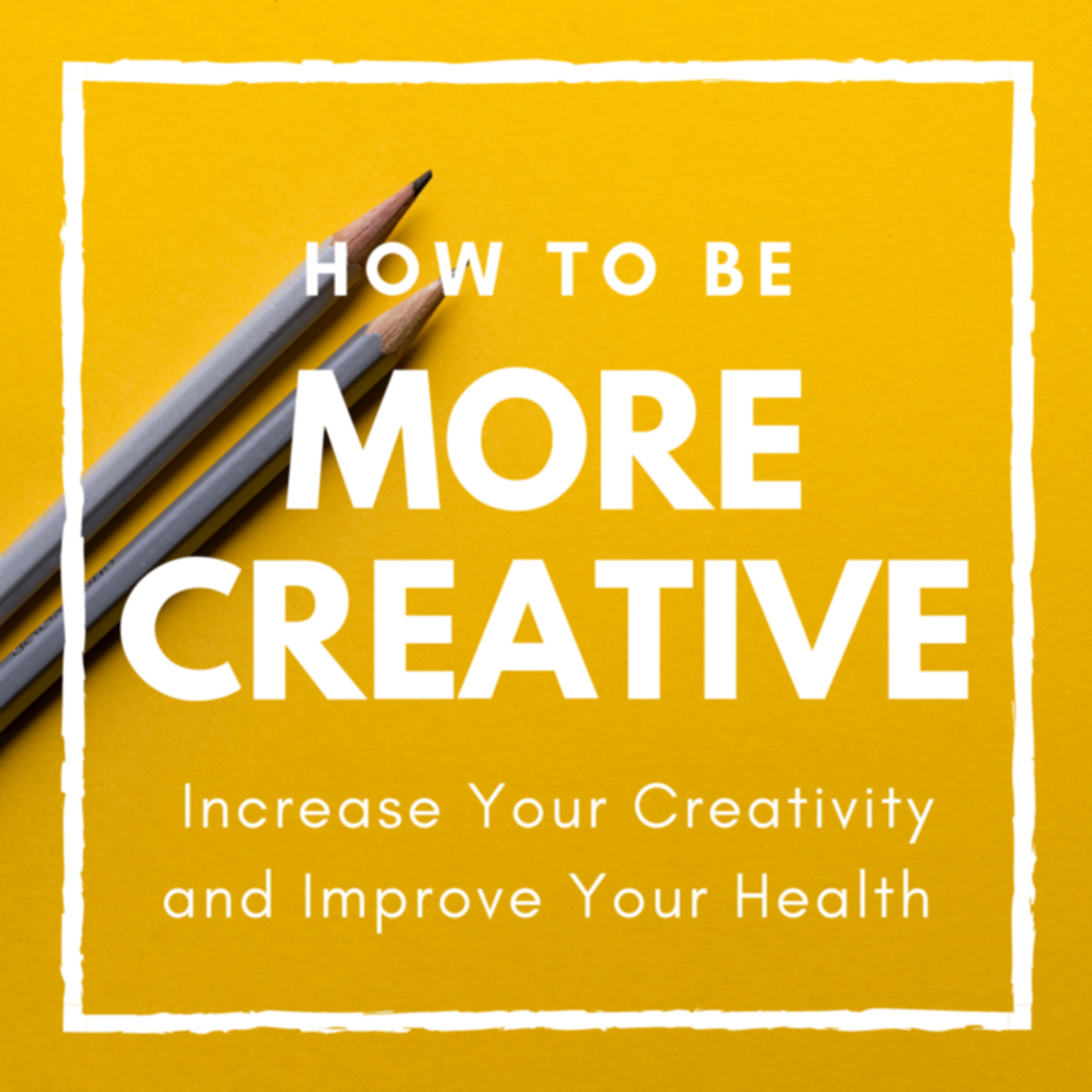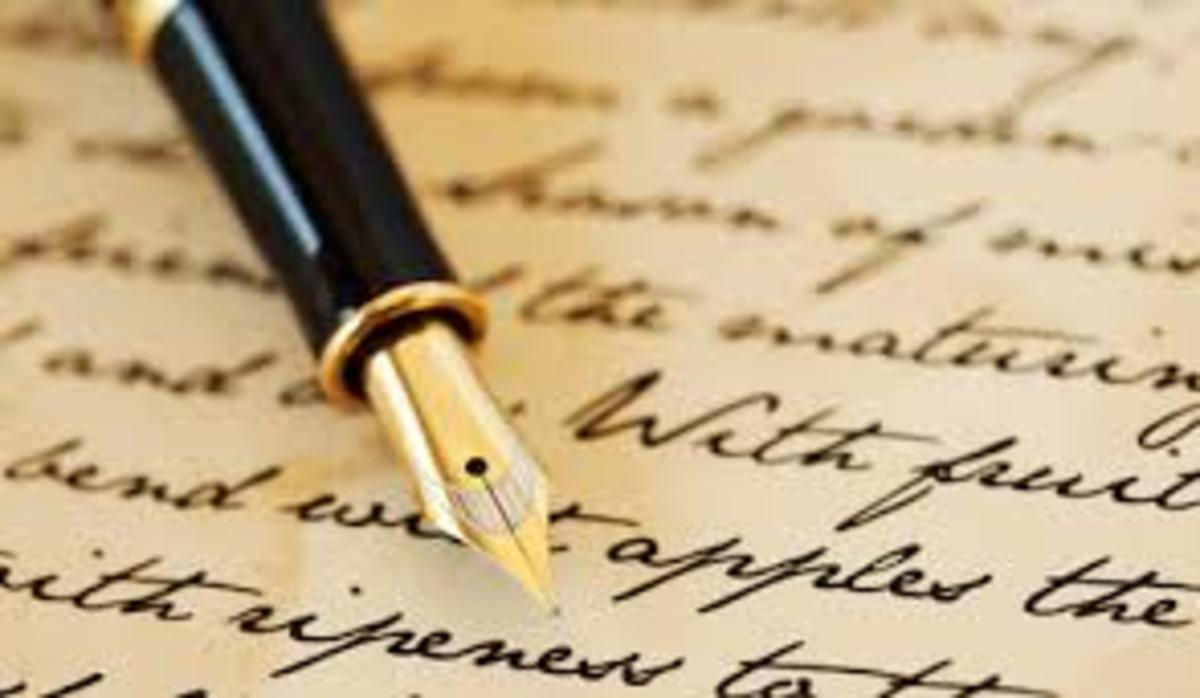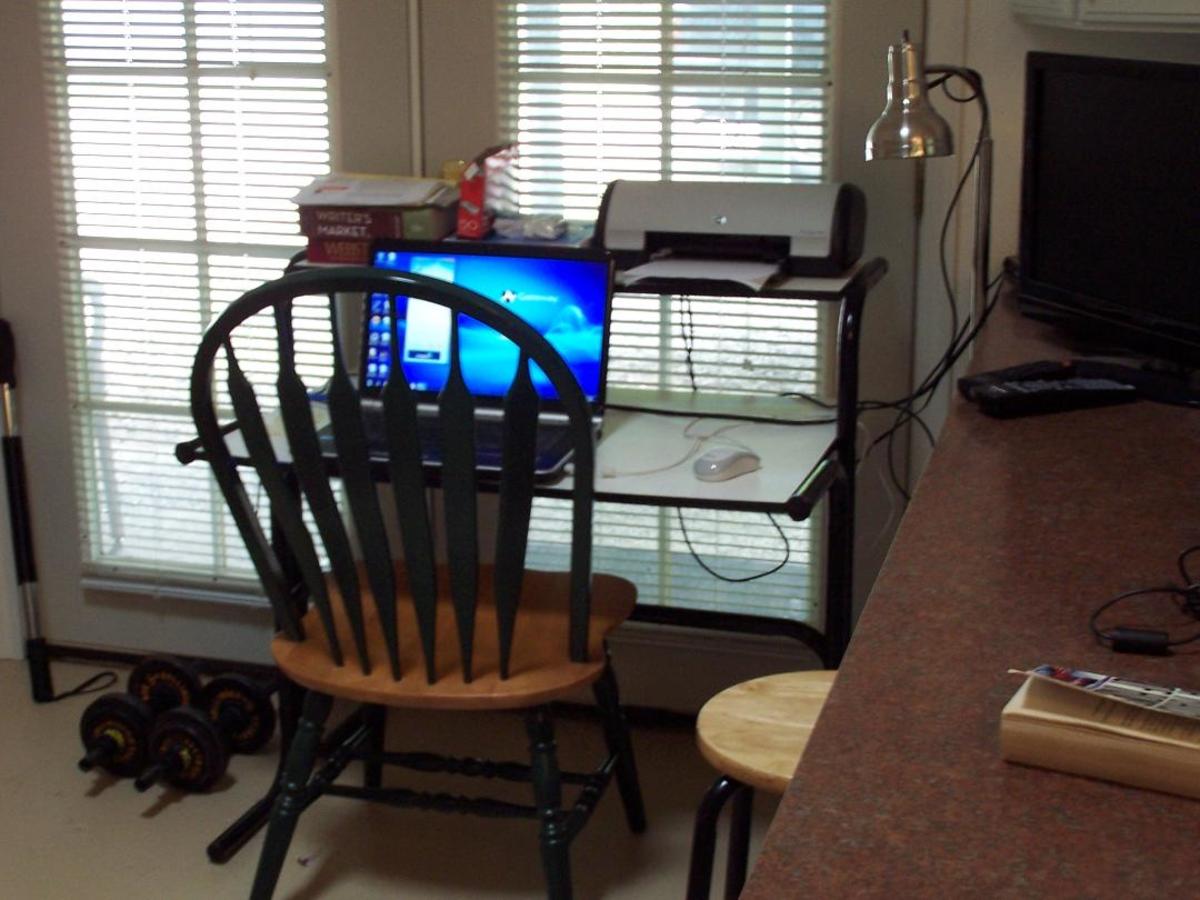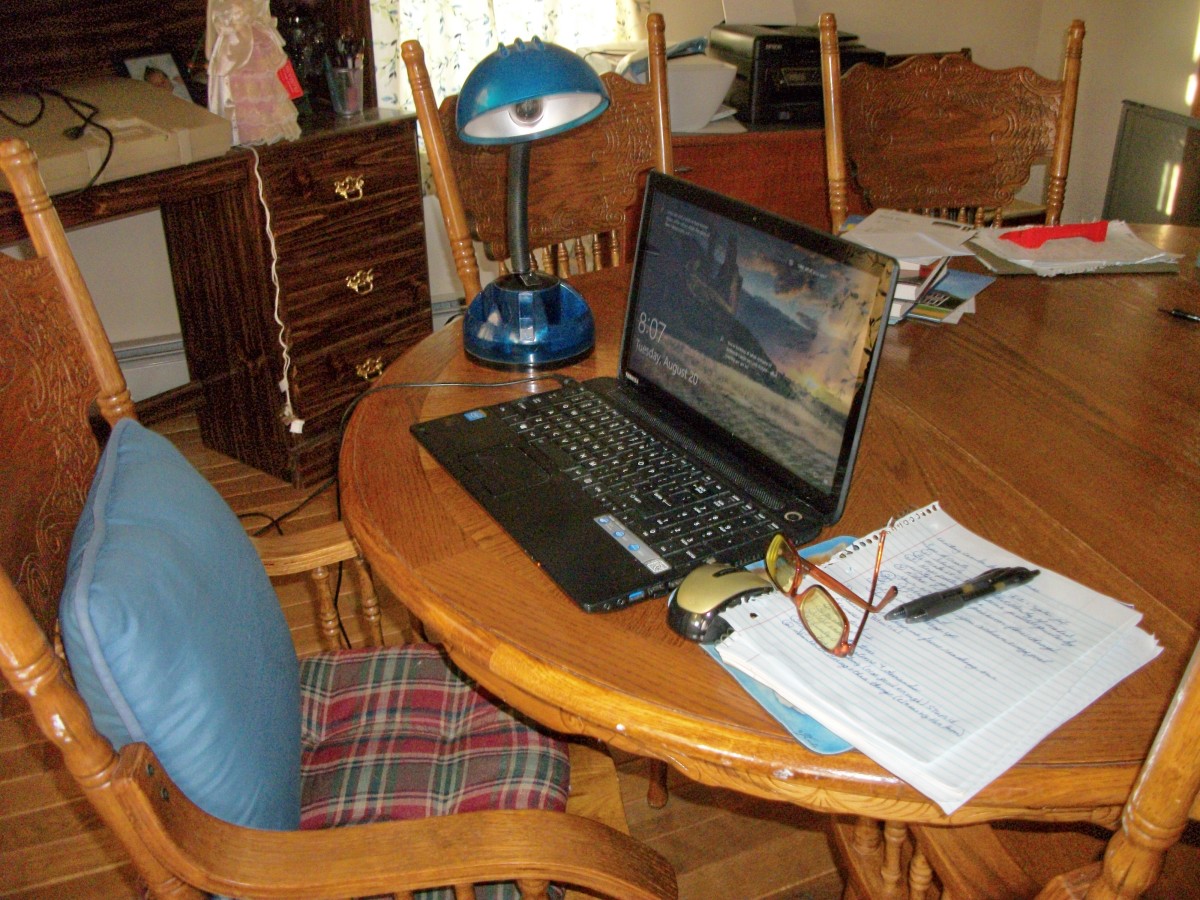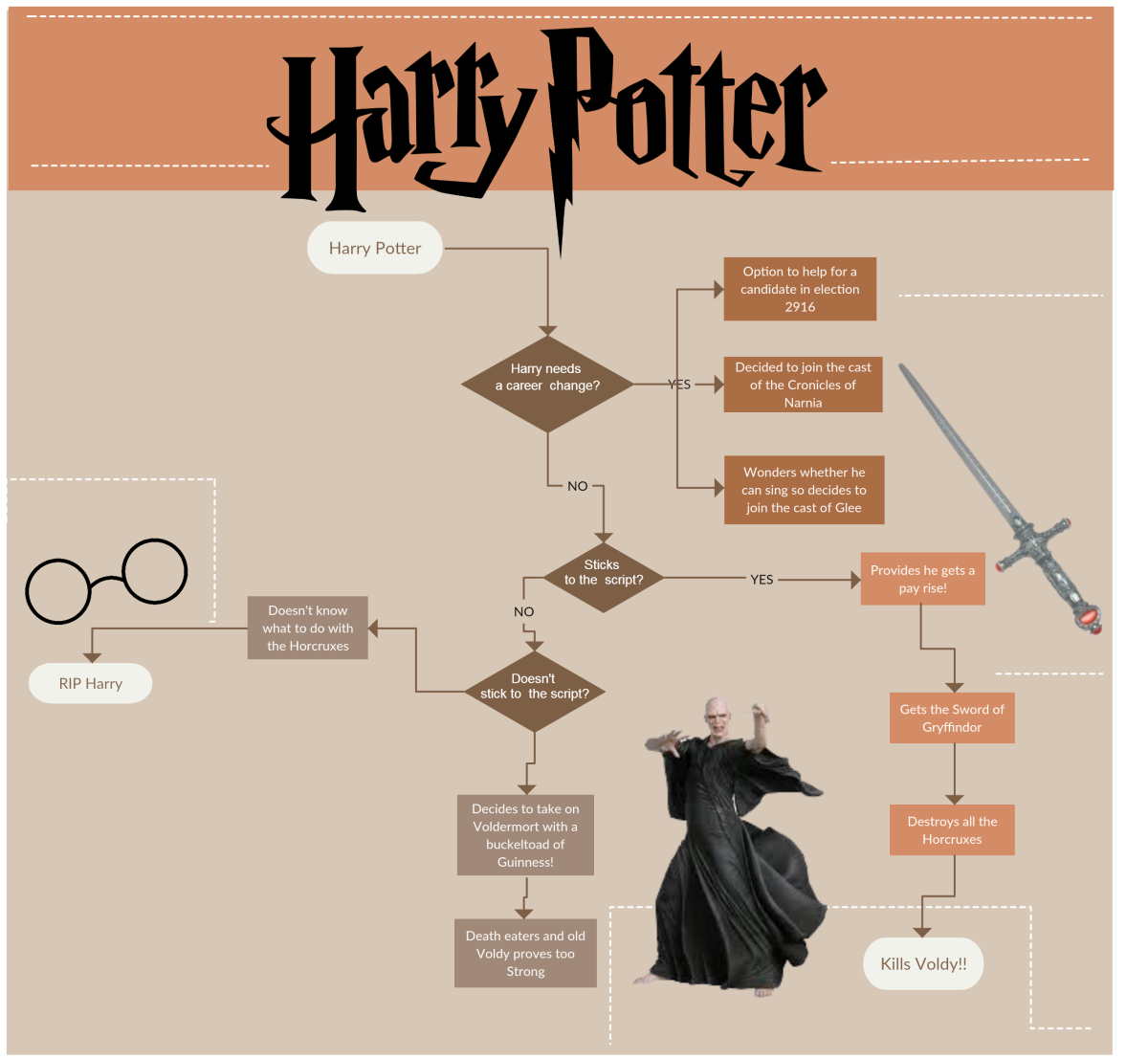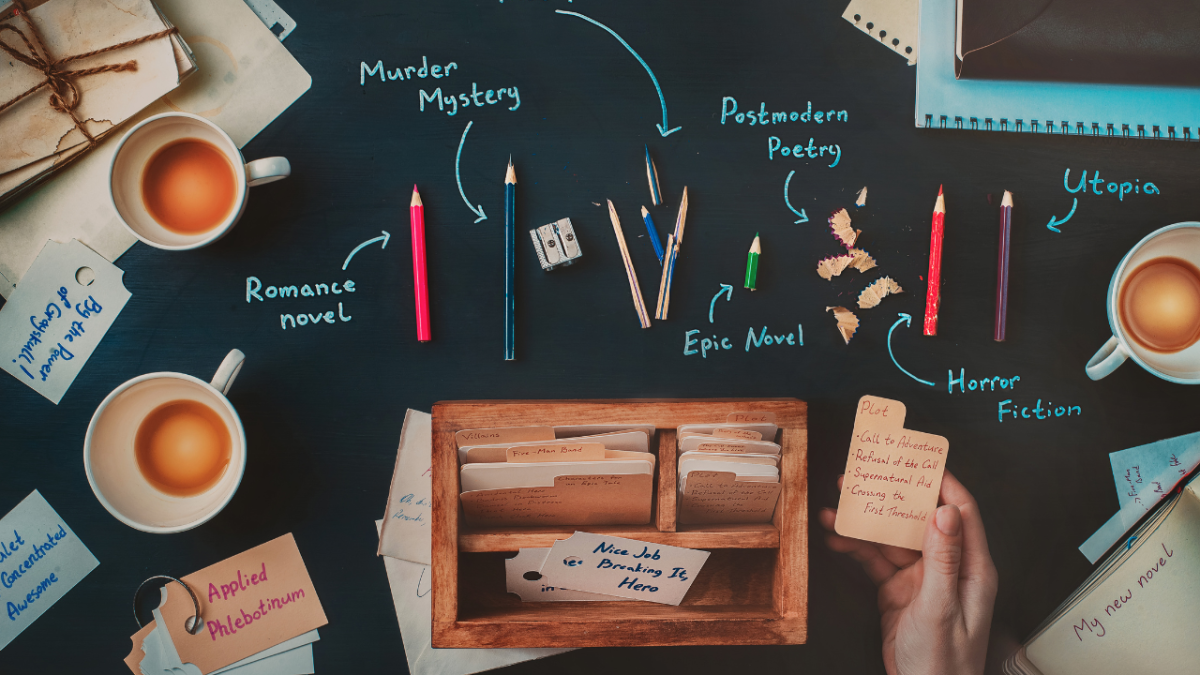How To Fix Writers Block
Can't Write?
Many writers hit an invisible wall which prevents them from either finishing a writing project or from starting something new. The longer they stare at that empty computer screen, the bigger the hurdle seems to grow. The way forward feels blocked.
The reasons for this are surprisingly simple. The drive for perfectionism, under-developed story ideas, poor timing or boredom usually lie at the root of writer's block.
The simple steps outlined in this article will help unblock your creativity.
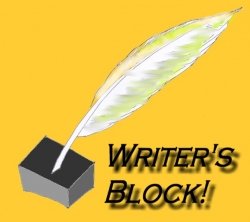
The Quest for Perfection
If you aim for absolute perfection from the outset, your creativity will be reigned in by focussing too much on technical issues such as grammar or flawless dialogue.
You can fix all this in later drafts. For a first draft, simply get the story down - get it told - from start to finish.
Only your pet dog need hear a reading of the first draft. Dogs are much less critical than humans. My dogs are, anyway. They've sat through many such readings without complaint.
When the first draft is complete, read it aloud to yourself. Reading aloud might feel a little peculiar at first, but I've found it an incredibly useful method of spotting awkward, redundant or repetative text.
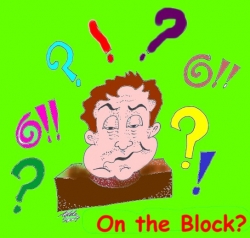
Distractions Galore!
Looking to put off writing? Here's a list of really vital (!) excuses and distractions.
- Social networking - guaranteed to waste loads of your time with fascinating trivia;
- Laundry which absolutely must be done today;
- Shopping, as the word is apparently full of vital bargains;
- Walking the dog;
- Making a snack you don't actually need;
- Googling reviews of the novel you just read;
- Googling yourself.
I'm sure you can think of plenty more!
Create a Writing Routine
Writing flows more easily if a regular routine is maintained. Pick a convenient time to write, something which suits your daily timetable.
You might choose to write for one hour a day or you may prefer to set yourself a minimum number of words to per day. Stick to your routine. This way, you're programing your brain so that at a certain time of your day you're automatically geared up for writing. Having a set routine also makes it easier to train your family or housemates to respect that time and leave you alone so you can get on with the task of writing.
Experiment with different routines to find the one which works for you.
Some find it easier to write early in the morning when the rest of the household is still in bed. Others prefer to write late at night. Perhaps you can make use of commuting time to write while you're on a train.
Try creating a writing environment.
Some people feel they need silence to write, others find that music helps to get them into the mood for writing, even choosing different kinds of music to help with this. Some people like a clean, empty workspace; others like to be surrounded with reference books, crystals, plants, post-it notes, bric-a-brac, or have character charts pinned to the walls. There is no right and wrong way. Have things to suit yourself.
Bored With Writing?
Has your creative flow slowed to a crawl due to boredom?
Set aside the piece you're working on and try something else. You can always come back to the original piece, and meanwhile you might try writing short stories about some of the characters in your main piece. This is a good way of really getting under the skin of your characters, too, and developing them into more rounded and believable people. Write enough of these short stories, and you've got the makings of another book.
If you write professionally and are bored by a particular peice, maybe you have no choice but to plough ahead and finish it to make a deadline. Maybe there is a way of enlivening the piece, or maybe the subject simply doesn't interest you that much but it's a way of putting food on the table. That's one difference between a professional and a hobbyist - the professional has to produce the work required of them.
On a rough bit of paper, quickly jot down what you need to say with the piece. From this, work out the order of information needed within the story, and so form an outline. This approach works so much better than staring at a computer screen and waiting for inspiration to strike - which can be a very long wait indeed.
Exploring Creative Outlets
If you're a hobbyist and are bored by a piece of writing, rest assured that Planet Earth will not cease to turn if you abandon that bit of story and choose to write something else instead. You're doing this for fun, for goodness sakes! If you're not having fun, do something else.
Maybe creative writing simply isn't for you? Perhaps you have completed a writing course, or enjoyed one of the many writer's breaks which are advertised, but when it comes down to the actual writing part... Over the years, I've met quite a number of 'writers' who don't actually write much!
Many creative people experiment with different outlets for their creativity before they settle on their eventual main outlet. They try writing, and then discover it's not really for them and so move on to something else, such as pottery, painting, dance or jewellery making. This is not a sign of failure, but of a person's progress along their own creative journey. There is no time limit on this process; it takes as long as it takes.
Also, many creative people maintain more than one creative outlet. I know writers who are also musicians, or poets who are also painters. It's up to you to explore and experiment with different paths of creativity.
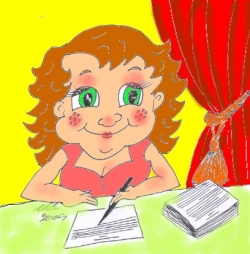
Ideas and Inspiration for Writers
Switch off the TV and read widely. Even those novels which you don't particularly like can be useful in identifying techniques and approaches. Reading recent material is the main way of developing insight into the current publishing industry. Reading books you'd normally overlook can broaden your appreciation of other genres.
Learn to look. Every time you leave your home you are surrounded by little events which can be turned into a story.
Learn to listen. Snippets of overheard conversations, even the mundane, can provide a useful starting point for a story. Listen to the world around you as you do shop for groceries, ride on the train or wait in a Post Office queue. Hear the scowling teenager yammering into her mobile phone about how awful her mum is? Is her mum really that bad, or is it a teen phase? Is the person on the other end of the phone a friend or a councillor, an aunt or a hired assassin? Make it up; it's just a game with ideas, but one which can spark a fresh tale.
Some writers take notes, jotting down ideas so they're not forgotten. Others keep a dream diary as a source of unexpected ideas. Notebooks can be easily carried in a pocket. I used to do this but I abandoned the plan when I realised that strong ideas stay with me anyway, and weaker ideas aren't worth storing for posterity.
Get Writing!
To get creativity flowing, try doing a writing exercise such as the monthly projects we set at Riverside Writers. Members create poems or short stories of any length or genre on a set theme - such as a location, a phrase or object, an opening or ending sentence. Those who have participated in these projects have found their writing has improved, they've written things they might not have otherwise even thought of, and some have gone on to be published. Over time, they also create a portfolio of finished work.
The exercises which follow have been designed to help you think get writing. Whether you're a fiction writer or a poet, breaking out of self-imposed limitations can be a very effective way of improving your writing - and having some fun as well.
Why not try your own hand at a few of the projects listed below?
.
Writing Projects
PROJECT ONE: The Locked Box Grandad's Shed.
What is inside the box? Why was it locked? Who looks inside? What is the story behind the contents?
PROJECT TWO: The Park Bench.
Who sits upon the park bench? Are they waiting for someone, or remembering something, resting or looking for somewhere to sleep?
PROJECT THREE: The Collection.
What sort of collection is it, who collected it and why? Who owns it now, and what happens next?
PROJECT FOUR: Maze.
A grand party in the centre of a maze, or is someone lost in one? What is the secret of the maze?
PROJECT FIVE: "I couldn't live without net curtains," she said.
Use this segment of an overheard conversation to weave a story. Who is speaking, and what are they speaking about? Let your imagination fly.
PROJECT SIX: The Cabin.
While trekking through a remote forest road, you stumble over a cabin. What is it made from, who lives there and why?
PROJECT SEVEN: Through New Eyes.
Using a minor character of the novel you're currently writing, create a short story with them in the main role. How does the story told in the novel look through their eyes? How do they relate to the other characters in your book? Tell a spin-off tale, linked by character.
Further Reading...
- Fiction Story Generator - A Low-Tech Writer's Aid
Do you want to write but feel short on ideas? Are you a member of a writers circle looking for monthly writing projects? This story generator will provide a huge quantity and variety of story ideas simply and quickly - Character Charts - a Writer's Aid
Purposes of Character Charts: (a)helps create whole characters; (b)find data easily; (c)prevents errors. Why writers use character charts. Plus FREE chart!
Share Your Views!
Did you find this article useful?
© 2011 Adele Cosgrove-Bray


